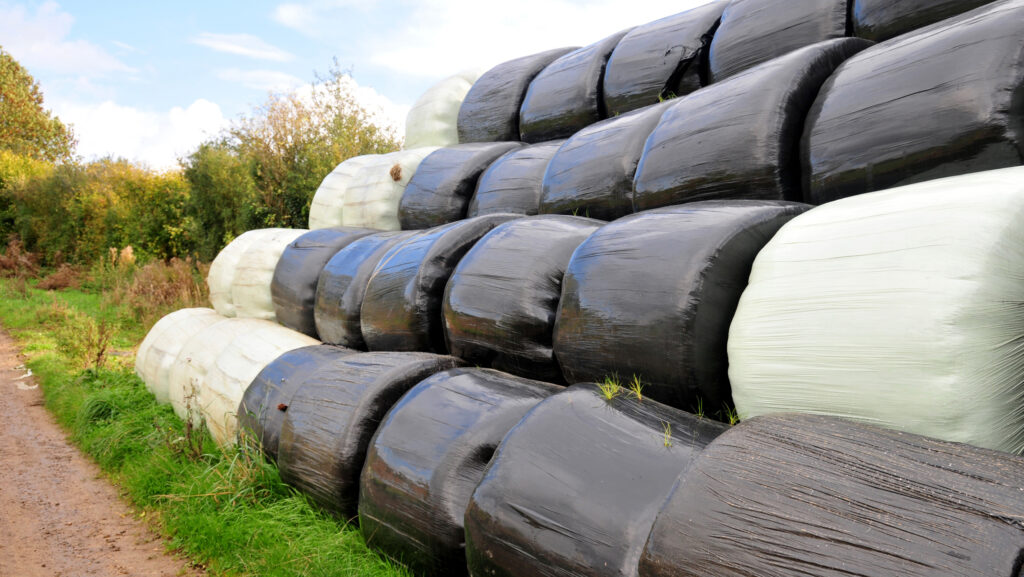New initiative to recycle silage wrap and feed bags in Wales
 © Adobe Stock
© Adobe Stock Natural Resources Wales (NRW) has set up a number of drop-off centres for farm plastics, in a bid to reduce pollution within the rivers Teifi, Tywi, Cleddau and Usk catchment areas.
Farmers in south Wales will be able to drop off silage bale wrap, pit cover sheeting, fertiliser and feed bags, and feed buckets at collection sites and livestock markets across the region.
The scheme, supported by Agriculture Plastics Environment, Birch Farm Plastics and Afonydd Cymru, will provide the service at a reduced rate compared with on-farm collection.
See also: £33m for SFS preparatory schemes announced
NRW aims to recycle an additional 200t of farm plastics through the trial scheme.
Chris Thomas, senior land management officer at Four Rivers for Life, said: “Farm plastics have been found in the Teifi, Tywi and Cleddau rivers and contribute to the overall environmental issues affecting their health.
“Healthy rivers support more than just farmers and the environment – they also help communities thrive and grow.
“Rivers can only fully perform this function and support farmers if they are healthy and free from pollution and plastic waste.”
Recycling
A report in 2023 by non-governmental organisation Wrap found that the UK has an agri-plastic recycling rate of 20-30%, which is significantly lower than other European countries.
Germany, France and Ireland were found to have recycling rates of 65%, 80% and 90% respectively.
Ian Creasey, chief executive at Agriculture Plastics Environment, said: “Learning from successful markets in Europe, ‘drop off centres’ significantly help farmers in recycling their used farm plastics, and is a key focus of this trial.
“This scheme is dedicated to supporting farmers to recycle their agricultural plastics, and by doing so help protect these rivers from potential plastics pollution.”
Cheryl Birch, director at Birch Farm Plastics, which is partnering with NRW in the scheme, said: “Our costs are lower when collecting from drop-off centres, so we are also able to pass that saving onto farmers and promote the recycling option for waste plastics for the benefit of farmers and the environment.”
